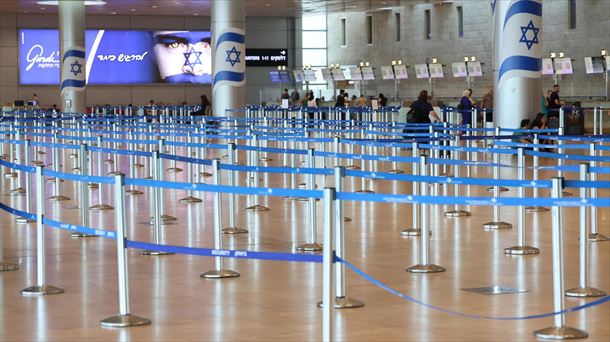The military maintains normalcy at identity checks, but road transport becomes a nightmare and the railway is closed
The deployment of army soldiers and public administration officials has prevented the feared collapse of UK airports following the strike by workers of the Border Force, the government agency responsible for identity checks on passengers arriving in the UK. However, the British will have to adapt to more strikes around Christmas.
At noon this Friday, all the passengers consulted by this newspaper on the departure of those who had landed in Terminal 3 at Heathrow Airport confirmed that they had not been delayed, and the taxi drivers waiting for customers also said that the pattern of the day was the same as other days. Army soldiers walked through the terminal, something unusual.
Long queues and blockages have been avoided. The number of flights that will land on the dates of the strike – from next Friday to the end of 2022, except December 27 – will be about 9,000, with 1,800,000 seats. This Friday is usually the busiest day in transportation on these dates. An estimated 250,000 passengers will arrive at the seven affected airports.
The Heathrow experience is similar to what happens at Gatwick, in Manchester, Glasgow, Birmingham and Cardiff. Testimonials on social networks from passengers claiming they crossed the border faster than usual are common, although there is no evidence that the number of flights has been reduced.
Mark Serwotka, general secretary of the union for workers in the public and commercial service (PCS), has warned the government that it has a mandate from its members to call strikes until May 2023. His complaint is the 2% wage increase, contributing to a decade of increases below inflation. He has also suggested that the strike will spread to the port of Dover, essential for the import and export of goods.
While the feeling is that the situation at the airports is normal at the start of the strike, the heavy rains and the strikes announced by the employees of the railway companies have created a traffic nightmare of a special day, when thousands of people travel by train or road to spend the holidays with their family.
No trains will run after 7 p.m. on Friday, the day on which most travelers are normally registered on the rail network. The alternative is the road, and the Royal Automobile Club, which offers insurance and services to drivers, has asked them not to use the road until 7pm due to weekend traffic and Christmas Eve. Also, there is a four-day strike by the employees of the entity that manages highways, highways and highways.
The pulse to the government is maintained. Nurses and ambulance workers will go on strike again in January, as will railway and highway workers. Is it another ‘winter of discontent’, the time of strikes and inflation, in 1978 and 1979, which marked the collapse of the Labor economic project and the rise of Margaret Thatcher’s liberal theories?
The expression is taken from a play by William Shakespeare, Richard III. The original has little to do with its later use. It is also perhaps unlikely that the cycle that began with the election of Thatcher by the British over the unions and the government of James Callaghan culminated in voters voting more for the unions and Keir Starmer Labor than for the Liberal Rishi Sunak . The British Prime Minister has declared himself “sad and disappointed” by the strikes.
Source: La Verdad
I am an experienced and passionate journalist with a strong track record in news website reporting. I specialize in technology coverage, breaking stories on the latest developments and trends from around the world. Working for Today Times Live has given me the opportunity to write thought-provoking pieces that have caught the attention of many readers.



